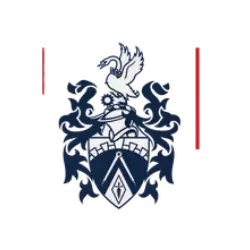
Key takeaways
- Creative writing students balance workshops, lectures, and reading
- Expect regular writing assignments and critiques
- Time management is crucial to handle projects
Creative writing seems to be a degree that prompts many questions. Why are you studying it? Do you want to write a book? What do you do? Those are the typical questions I get when talking about my studies that I have no problem answering. Writing has always been a passion of mine for as long as I can possibly remember. No other subject aligned more with any possible career path I could go down than English. I knew I loved a good book and a great film/TV series, but had to start somewhere. How was I going to be amongst bookshelves? How could I get something I wrote on screen? Those were the many questions I asked myself as I grew older before realising I could actually study my passion at degree level and eventually coming across creative writing.
What does creative writing entail?
Creative writing is a degree which is defined by its title but covers much more than you’d think. It’s variety surprised me. From short stories and poetry to screenwriting and life writing, creative writing is a degree I’d most definitely recommend to anyone wanting to write both fiction and non-fiction in any capacity. I’ll be taking you through a day in the life of some of the many modules I have either previously studied or that I’m currently undertaking. Hopefully, after reading this you’ll either be much more informed on what a creative writing degree entails. Or better yet, be convinced to take the leap of faith and apply to study it at your university of choice if you’ve been wrestling with the decision of whether you should prior to reading this.Fiction I: Introduction to writing fiction
Fiction was a mandatory module I undertook during my first year of university studies in order to prepare me for one of the second year modules I ended up choosing called Writing The Short Story. The day would begin with a two-hour lecture followed by a seminar later in the afternoon. During that time, I learned the core elements and required skills necessary to write and regularly read and discussed fiction by published writers. Each week we’d focus on specific elements such as character, setting, plot and dialogue to understand their importance and review how published writers had implemented each in their own work. To pass this module, I had to submit more than one piece of fiction totalling 2000 words and ended up submitting both a short story and a flash fiction piece. Overall, this module was very beneficial to me, and I’d strongly recommend it to any creative writing student wanting to learn how to write fiction.Poetry I: Introduction to writing poetry
Poetry was another mandatory module I undertook during my first year at university. During my weekly lectures, I learned about the necessary skills required to write poetry. Such as poetic line, working in form and free verse as well as reading and discussing poetry by published writers. In our seminar groups, we’d review each other’s work, developing skills for giving and receiving constructive feedback. For our assessment, we were required to submit a portfolio of poetry containing six poems along with a 1000-word reflective learning journal. This module was also beneficial to me despite writing poetry years prior, as it allowed me to grow as a writer beyond writing in free verse.Screenwriting

What else?

Further information
For more information on what jobs you can do after, read our article on graduating with a creative writing degree. If you are interested in taking a creative writing degree but don’t know what university is right for you, check out the Complete University Guide to help you get started.
Change: Reviewed guide for accuracy and added Key takeaways to enhance user experience
Authors
-
View all postsI’m currently a second year student studying creative writing. From poetry, short stories, novels and more I very much enjoy all things fiction and non-fiction. I hope you find my articles both informative and enjoyable to read while you're at uni, or thinking about uni!
-
Aminah is a dedicated content expert and writer at Unifresher, bringing a unique blend of creativity and precision to her work. Her passion for crafting engaging content is complemented by a love for travelling, cooking, and exploring languages. With years spent living in cultural hubs like Barcelona, Sicily, and Rome, Aminah has gained a wealth of experiences that enrich her perspective. Now based back in her hometown of Manchester, she continues to immerse herself in the city's vibrant atmosphere. An enthusiastic Manchester United supporter, Aminah also enjoys delving into psychology and true crime in her spare time.
View all posts






